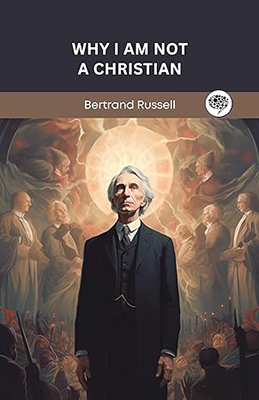Why I Am Not A Christian
Bertrand Russell, a prominent philosopher, mathematician, and social critic, was famously skeptical about religious beliefs, including Christianity. In his work “Why I Am Not a Christian,” Russell presents a series of arguments questioning the rationality and validity of Christian beliefs. Here’s a summary of some of the key points he makes in the book:
Existence of God: Russell challenges the existence of God, arguing that there is insufficient evidence to support such a belief. He critiques the classical arguments for the existence of God, such as the cosmological and teleological arguments, suggesting that they fail to provide sound reasoning for the existence of a divine being.
Problem of Evil: Russell discusses the problem of evil, questioning how a benevolent and all-powerful God could allow for the existence of suffering and injustice in the world. He argues that the presence of evil is incompatible with the concept of a loving and omnipotent deity.
Morality and Ethics: Russell explores the idea that ethical principles can exist independently of religious doctrine. He advocates for a secular morality based on reason, compassion, and human values rather than divine commandments.
Historical Critique of Christianity: Russell examines the historical origins of Christianity and raises doubts about the accuracy and reliability of biblical accounts. He questions the miraculous events described in the Bible and suggests that many religious beliefs are based on myth and legend rather than historical fact.
Intellectual Freedom: Russell emphasizes the importance of intellectual freedom and critical thinking, encouraging individuals to question religious dogma and explore alternative perspectives. He argues against blind faith and asserts the need for evidence-based reasoning in belief formation.
Overall, “Why I Am Not a Christian” reflects Russell’s skepticism towards religious faith and his advocacy for rational inquiry and secular humanism. The book serves as a critique of Christianity and an affirmation of the importance of reason and evidence in shaping one’s worldview.

